Brilliant red, white and blue fireworks lit the night. Strains of the 1812 Overture echoed across the water. The sky glowed as cannons volleyed and church bells rang. But that memorable evening, I wasn’t watching on television. Mother and I experienced the scene overlooking Boston Harbor.
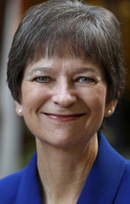 Kathy HillmanEarlier, we joined throngs along the Charles River, where we glimpsed the bright stars and prominent flag in the Hatch Shell. We heard the Boston Pops pay tribute to that long-ago day when the Continental Congress approved the final wording of the Declaration of Independence. The colonies may have declared independence from King George III and England on July 4, 1776, but much work had yet to be done—a war won, a nation born and liberty ensured.
Kathy HillmanEarlier, we joined throngs along the Charles River, where we glimpsed the bright stars and prominent flag in the Hatch Shell. We heard the Boston Pops pay tribute to that long-ago day when the Continental Congress approved the final wording of the Declaration of Independence. The colonies may have declared independence from King George III and England on July 4, 1776, but much work had yet to be done—a war won, a nation born and liberty ensured.
True, many colonists traveled to the New World in a quest for greater religious freedom. Yet nonconformists and dissenters faced persecution.
In Puritan-established Massachusetts, Baptist Obadiah Holmes was flogged publicly for holding an illegal meeting. Because they were banished, Anne Hutchinson and Roger Williams founded Rhode Island, where Williams established the first Baptist church on the continent. 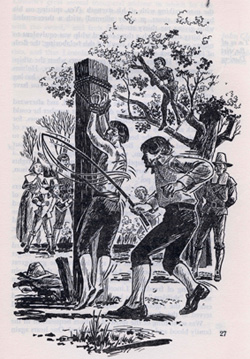 Baptist Obadiah Holmes was flogged for holding an illegal meeting. (Illustration courtesy of the Southern Baptist Historical Library and Archives, taken from Tales of Baptist Daring, by Benjamin P. Browne, illustrations by William Hamilton, published by Judson Press, 1961, page 27)Harvard’s first president, Henry Dunster, refused to have his infant son baptized and lost his position. Officials in Boston denied Baptists use of a meetinghouse they built. In Virginia, evangelists were routinely fined, whipped or jailed. Paying taxes to support the established church caused constant conflict, as did the requirement to obtain preaching licenses.
Baptist Obadiah Holmes was flogged for holding an illegal meeting. (Illustration courtesy of the Southern Baptist Historical Library and Archives, taken from Tales of Baptist Daring, by Benjamin P. Browne, illustrations by William Hamilton, published by Judson Press, 1961, page 27)Harvard’s first president, Henry Dunster, refused to have his infant son baptized and lost his position. Officials in Boston denied Baptists use of a meetinghouse they built. In Virginia, evangelists were routinely fined, whipped or jailed. Paying taxes to support the established church caused constant conflict, as did the requirement to obtain preaching licenses.
Eventually, as more settlers arrived, religious tolerance increased. By the signing of the Declaration of Independence, nearly 500 Baptist congregations existed. Most Baptists viewed the battle for civil independence and the fight for religious liberty as one struggle. Many fought and died. However, winning the war guaranteed only political sovereignty. Questions of religious sovereignty remained.
Some denominations favored establishment, meaning the government supported one religion over another. For pastor John Leland of Virginia and other Baptists, the answer was a clear Baptist distinctive. Church and state should be separate, but the state should guarantee religious liberty.
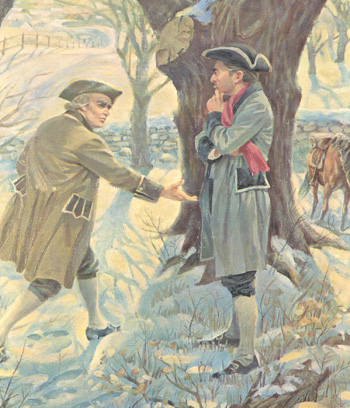 James Madison meets with John Leland. (Illustration by Edwin M. Hearne Jr., courtesy of the Southern Baptist Historical Library and Archives.)Public school students study the U.S. Constitution and by law participate in Celebrate Freedom Week. In Texas, the event coincides with Constitution Day, Sept. 17. Perhaps some, as did our children, must memorize the preamble. After assisting Marshall, Michael and Holly, I still can recite those historic words.
James Madison meets with John Leland. (Illustration by Edwin M. Hearne Jr., courtesy of the Southern Baptist Historical Library and Archives.)Public school students study the U.S. Constitution and by law participate in Celebrate Freedom Week. In Texas, the event coincides with Constitution Day, Sept. 17. Perhaps some, as did our children, must memorize the preamble. After assisting Marshall, Michael and Holly, I still can recite those historic words.
On Sept. 17, 1787, the Constitutional Convention signed the document members drafted, debated and amended. The Constitution became the official governing document of the United States of America with New Hampshire’s ratification June 21, 1788.
Baptists felt the Constitution fell short. The only mention of religious freedom came in Article VI: “but no religious test shall ever be required as a qualification to any office or public trust.” For different reasons, Leland, James Madison and Thomas Jefferson believed in what Jefferson would later call “building a wall of separation between church and state.” 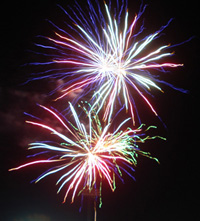 (Photo by Kathy Hillman)Leland considered running for Congress against Madison. Instead, the two exchanged promises.
(Photo by Kathy Hillman)Leland considered running for Congress against Madison. Instead, the two exchanged promises.
Sign up for our weekly edition and get all our headlines in your inbox on Thursdays
J.M. Dawson, Texas Baptist pastor and founding executive director of the Baptist Joint Committee on Public Affairs, participated in the dedication of the Leland-Madison Monumental Park in Virginia, which commemorates that history-changing meeting. Below a bas-relief of John Leland (1754-1841), an inscription tells the story:
Courageous leader of
The Baptist doctrine
Ardent advocate of the principles
Of democracy
Vindicator of separation
Of church and state.
Near this spot in 1788, Elder John Leland and
Jamese Madison, the father of the American
Constitution, held a significant interview
Which resulted in the adoption of the
Constitution by Virginia. Then Madison,
A member of Congress from Orange, presented
The First Amendment to the Constitution
Guaranteeing religious liberty, free speech and
A free press. This satisfied Leland and his
Baptist followers.
As agreed, Representative Madison introduced a resolution creating the Bill of Rights. The first part of the First Amendment prohibits “establishment of religion, or prohibiting the free exercise thereof ….” In December 1791, the Bill of Rights officially became effective, adding religious liberty as the twin of political independence.
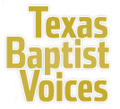 This Fourth of July, we’ll proudly fly the Stars and Stripes and watch the annual Woodway parade from our lawn. We’ll close the day with patriotic music and a fireworks display. As the 1812 Overture reaches its peak, we’ll hear cannons and church bells, simultaneous symbols of political sovereignty and religious liberty. Twins, two sides of the same coin, and an important Baptist distinctive that we’ll explore together at the 2015 Texas Baptist annual meeting.
This Fourth of July, we’ll proudly fly the Stars and Stripes and watch the annual Woodway parade from our lawn. We’ll close the day with patriotic music and a fireworks display. As the 1812 Overture reaches its peak, we’ll hear cannons and church bells, simultaneous symbols of political sovereignty and religious liberty. Twins, two sides of the same coin, and an important Baptist distinctive that we’ll explore together at the 2015 Texas Baptist annual meeting.
Kathy Hillman is president of the Baptist General Convention of Texas. She also is director of Baptist collections, library advancement and the Keston Center for Religion, Politics and Society at Baylor University.















We seek to connect God’s story and God’s people around the world. To learn more about God’s story, click here.
Send comments and feedback to Eric Black, our editor. For comments to be published, please specify “letter to the editor.” Maximum length for publication is 300 words.